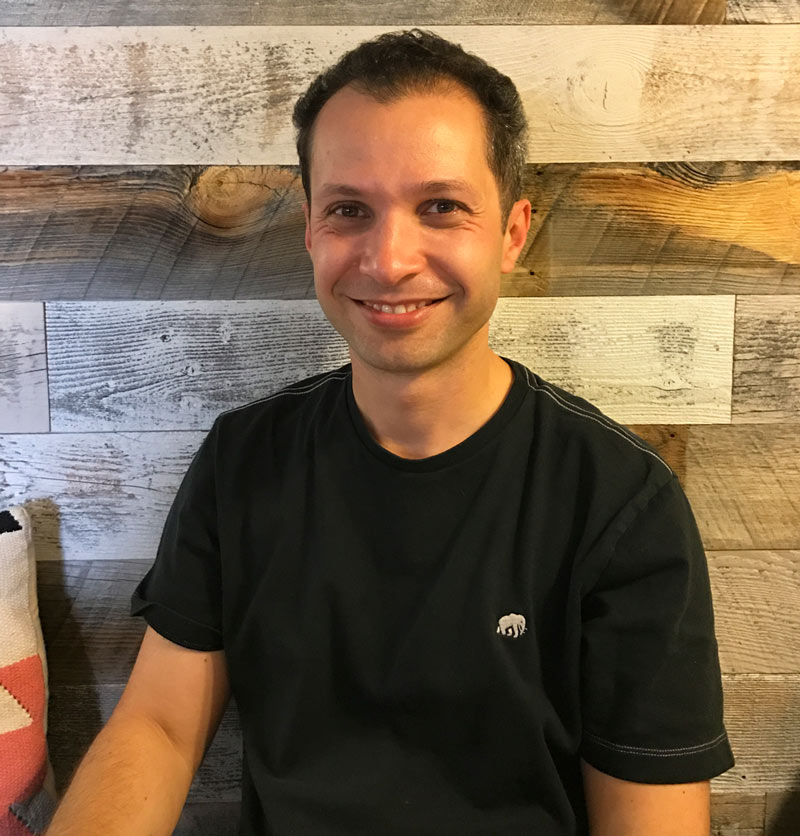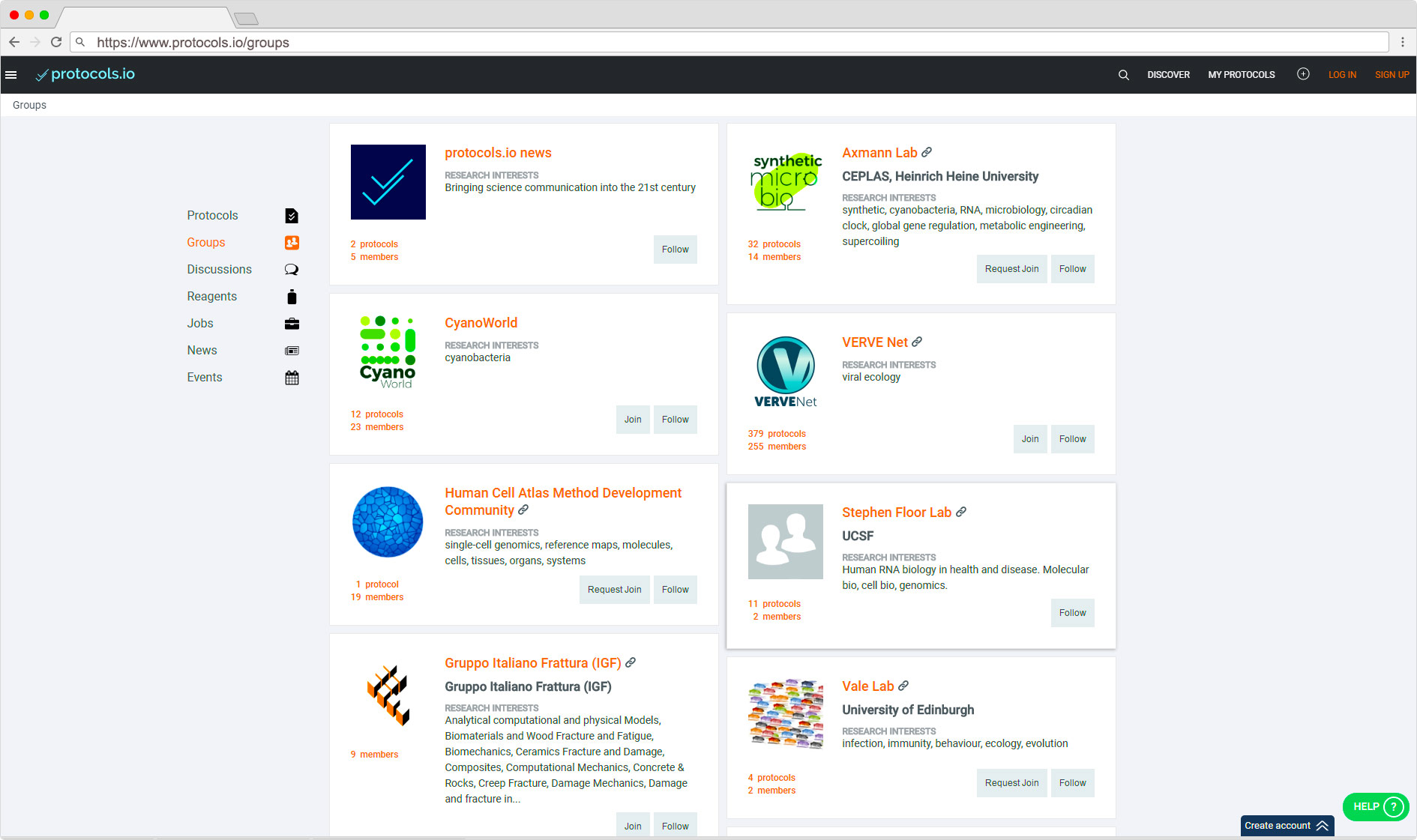Sharing and Discovering Science Methods: Open Science Platform Protocols.io
Using up-to-date research methods is essential for researchers. However, advancing research methods is often not rewarded though it is a demanding process. Struggling with correcting a published research method as a postdoc led Lenny Teytelman to cofound prococols.io an open science platform for sharing and discovering up-to-date research methods.
The platform protocols.io is an open access platform for sharing and discovering up-to-date science methods.
 The CEO and co-founder Lenny Teytelman shares his experiences.
The CEO and co-founder Lenny Teytelman shares his experiences.
Did a repository similar to protocols.io exist before?
The quest for up-to-date research methods resource is at least several decades old. In 1999, Chris Yoo and co-founders started bioprotocol.com with a million-dollar venture capital investment. Unfortunately, that was just before the dot-com bubble burst and the investors liquidated the company. A few years later, researchers created OpenWetWare which is a predecessor to protocols.io, but was also ahead of its time and too hard for non-computational researchers to use. In 2006, Nature Publishing Group launched Protocol Exchange as an open access repository for science methods.
We got started on protocols.io in 2012, learning from the gaps and mistakes of the previous efforts and taking advantage of the new technology of the web and mobile.
How does protocols.io protocols.io and its mobile apps work?
Every protocol starts out privately and can be shared with individual collaborators or groups/organizations. When ready, with a click of a button, the author can make the protocol public and share with everyone. The iOS and Android native apps are particularly useful for laboratory hands-on protocols as they make it possible to “run” any private or public protocol, following the instructions step-by-step and keeping track of any changes in the experiment.
Many of the public protocols are shared when researchers publish research papers, with links to the detailed recipes on protocols.io from the materials and methods sections of their manuscripts. This helps to increase the reproducibility of the published research, reducing the common but unhelpful “contact author for details” or “we used a slightly modified version of the protocol reported in paper XYZ”.
The platform is open access and is both free to read and free to publish. Our business model is based on charging for non-academic private groups and on charging subscriptions to aggregated and anonymized analytics around the use of protocols and reagents inside them.
Who is behind protocols.io
The co-founders are myself, Alexei Stoliartchouk (CTO), and Irina Makkaveeva (CFO) who have been very close friends since 2003. Part of the seed for the platform is my experience as a postdoctoral researcher at MIT in 2009. I spent the first year and a half, correcting a single step of a previously published protocol in Nature Methods. The crazy part is that this was not a new method/paper but a correction of something previously published. Hence, I had no way of getting credit for my work and everyone else using the technique would either get misleading results or have to waste one-two years rediscovering the correction.
In addition to the founders, there is a team of engineers, designers, outreach, scientists and business professionals helping to improve and grow protocols.io. The funding comes from a core of 10 private angel investors, support from foundations (Moore Foundation, OPP, CZI) and half a thousand backers who believed in us back in 2014 and contributed to our Kickstarter.
Who (institutes, researchers) does already take part in protocols.io with her or his science methods?
There are 20,000 – 30,000 scientists viewing the public protocols every month, with traffic from 160-170 different countries according to Google Analytics. We have over 2,000 public and 5,000 private protocols, growing at 400-500 new monthly protocols, thanks to the hundreds of journals that now have protocols.io in the author instructions.

Out of the 500 groups on protocols.io, some of the most active communities are marine viral and protist researchers, genomics researchers, plant biologists, and recently researchers participating in the Human Cell Atlas consortium.
What barriers do you or the researchers experience?
One of the biggest challenges for any startup like ours is simply lack of awareness about our existence. You can build the most beautiful and free resource for scientists, but if they don’t know about it, it is useless. So outreach and partnerships are critical for increasing visibility and helping scientists to discover protocols.io.
An even bigger barrier is lack of time. Scientists are some of the busiest people on the planet, and finding 20 minutes to enter a protocol from their notebook or MS Word into protocols.io is not trivial for most. This means that there must be clear and strong benefits for researchers to take the time to explore protocols.io and use it to share their knowledge.
What will be your next steps?
There are countless aspects of protocols.io that we are eager to improve and many requests from our users are in our development queue. Listening to our users and delivering the features and improvements that they need is one of the most important goals for this and next year.
What will be your next steps?
We are also eager to start on connecting the protocols directly to the devices that the scientists use. Imagine you need to spin your cells for 30 seconds, but the centrifuge is accidentally set for 3 minutes. Our app should be able to connect to the equipment and alert the researcher to the wrong setting, asking if they are sure they want to proceed.
Lenny has over a decade of computational and experimental biology experience. He did his graduate studies at UC Berkeley, and it was his struggle with correcting a published research method as a postdoc at MIT that led him to cofound protocols.io. The protocols.io platform is an open access resource for sharing and discovering up-to-date science methods. Lenny brings to protocols.io protocols.io a strong passion for open access, sharing knowledge, and improving research efficiency through technology.
Open Science, Technology, Trends: Conferences, Exhibitions & Barcamps 2018
Which events could be worthwhile destinations in 2018 to stay informed about open...
